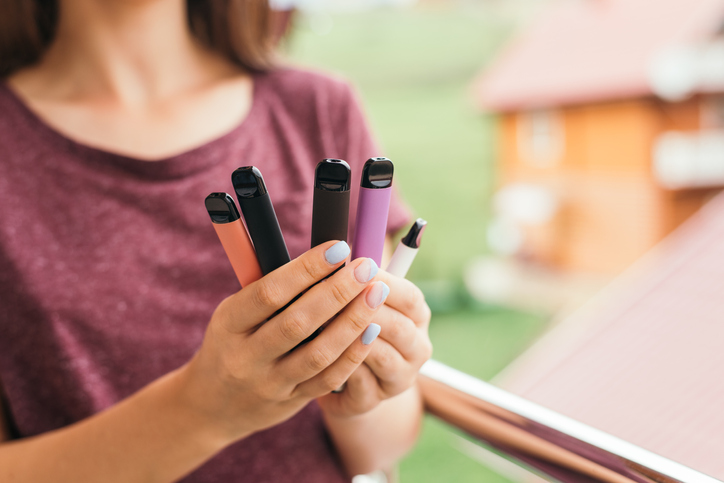MPs raise concern over environmental impact of disposable vapes
December 1, 2022

MPs held a backbench debate on the environmental impact of disposable vapes, raising concern on the “damaging waste” that is being created by the use of these devices.
Kirsten Oswald, SNP MP for East Renfrewshire, who secured the Westminster Hall debate held on 29 November, said “there is a bit of a vacuum where there should be scrutiny” on the environmental impact of the disposable vape industry.
“I recently used a written parliamentary question to ask the Secretary of State for the Environment, Food and Rural Affairs what assessment had been made of the environmental impact of vaping products. The answer was none—no environmental assessment at all,” she said.
“Nobody who has seen the sheer quantity of cast-off disposable vapes will think that is acceptable. I do not think that is okay, and we need to up our game quickly.”
Gareth Johnson, Tory MP for Dartford, however, noted that the harm reduction potential of vaping should be encouraged, while dealing with the environmental concerns.
“There is no doubt that this is an issue, but vaping has saved thousands of lives in this country. The more we can encourage smokers to move from tobacco on to vaping, the more lives will be saved,” he said.
“I would like to impress on the hon. Lady (Kirsten Oswald) how important it is in a debate such as this that we do not tarnish the reputation of vaping to the point where we put off smokers from switching over to it, which has to be a positive thing.”
Responding to the debate for the government, Rachel Pow, minister for environmental quality and resilience, acknowledged that improper disposal of disposable vapes is an environmental concern that needs addressing, citing the key findings from recent research commissioned by non-profit organisation, Material Focus.
She, however, stressed the importance of striving to ensure compliance with existing environmental obligations by different stakeholder, including manufacturers and sellers, before jumping to an outright ban.
“The WEEE (Waste Electrical and Electronic Equipment) regulations require importers and manufacturers of vapes and other electrical equipment to finance the cost of collection and the proper treatment of all equipment that is disposed of via local authority household waste sites and returned to retailers and internet sellers,” she noted.
“Retailers and internet sellers of vapes also have important obligations under the WEEE regulations to take back used vapes on supply of new vapes to their customers. In addition, they must also make available information to their customers about how to recycle vapes. Smaller retailers—say, a corner shop that sells all sorts of things and just a few vapes—can opt out of the take-back obligations if they pay into a scheme that supports local authority electricals recycling,” she added.
Pow has confirmed that officials had held discussions in recent weeks with the vaping sector to ensure the sector understands and communicates its obligations in relation to the WEEE regulations, and similar obligations in relation to batteries, and confirmed the discussions will continue.
She also revealed that the Environment Agency and the Office for Product Safety and Standards, which enforces the retailer take-back obligation, are putting together a programme to drive up compliance to this obligation, and are looking at what more can be done.
